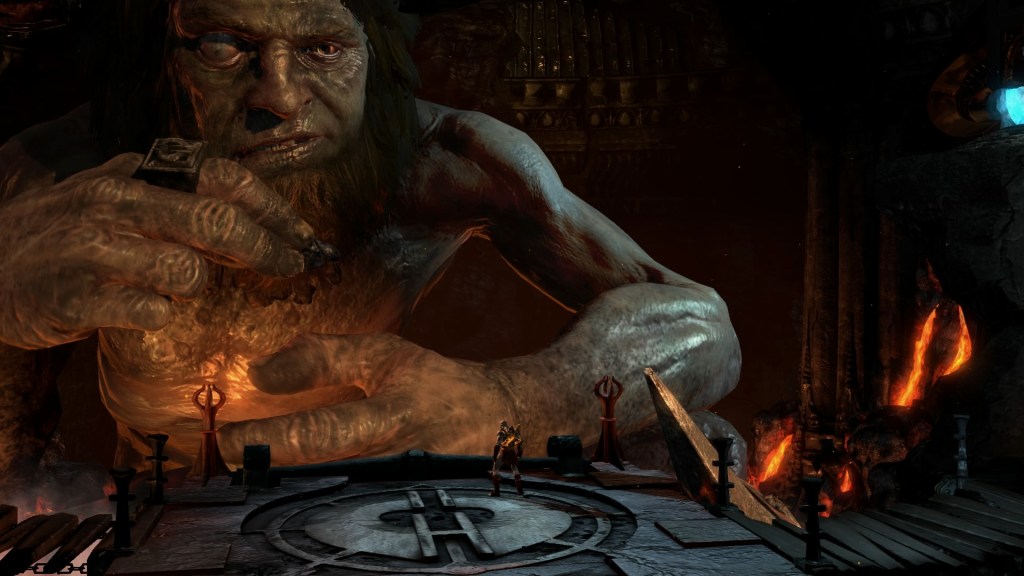
God of War III finished the trilogy that originally began on the PlayStation 2, in a series begun by the irreverent David Jaffe. While the original game released in 2010 on the PlayStation 3, it has been touched up and re-released onto the PS4. But has time been as good to a video game interpretation as it has been to the ancient Greek myths? Let’s find out.
Familiar Fun
If you had previously played God of War III, then you’ll fall into your old gameplay tactics here in no time. Since the game is the same as when it first released, there are no real surprises to be found anymore, unless you haven’t played the game in a long time and have forgotten most of it. I found myself very quickly pulling in enemy after enemy, with a combo count in the hundreds, as if I had been playing the game on a regular basis in the meantime. It shows just how simple the control scheme of God of War III is, and yet the game retains its characteristic difficulty level — expect to die several times on Normal mode, and at almost every boss encounter on Hard or higher modes.
God of War III is still like no other game that has come before or after it. The beginning sequence, which sees you killing Poseidon in a gruesome, first-person view, sets the tone and reminds you that when it comes to brutal violence, none can top Kratos. Other games still feel tame compared to God of War III. This is not a game you play in front of children. Kratos is rage incarnate, and you learn to appreciate just how much vitriol he has towards the Gods in a short amount of time.
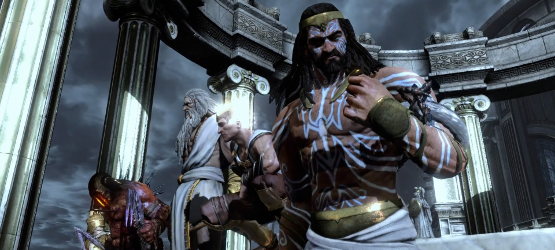
Audio Video Greatness
Audibly, the same score and sound effects are here in full force. I’m not sure there was any room to improve on the original God of War III’s audio work, as most of it was loss-less or nearly so, and in 7.1 surround sound no less. Every sound effect, from the groan of a lost soul in Hades to the moans of pleasure of Aphrodite as you…entertain her are crisp and of the highest quality. Whether on headphones or a home theater setup, you’re sure to feel every hit that Kratos dishes out.
Graphically, God of War III already looked incredible on the PlayStation 3. So, beyond some extra bloom effects, there’s not much to really be amazed by in the remaster. However, this version does appear to maintain a near-constant 60 frames per second, so everything that you loved looking at in the original version, such as the city of Olympia under siege or the massive titans fighting Greek gods, looks buttery smooth as the camera sweeps and pans to show you the action.
That camera is still stuck in a fixed position, which is a product of the series that it is in. God of War never had a freely-movable camera, with the right stick tied to making Kratos dodge, and this Remaster stays true to that formula. For the most part, the camera shows you all that you need to see, but occasionally it will zoom in on a rock or some other random section of a level for seemingly no good reason. This isn’t a deal breaker and is expected in a game like this, but it’s bound to get on someone’s nerves.
Take a Shot
There is now a new photo mode, which allows the player to not only freeze the action at a moment’s notice, but also get the perfect shot to share their finest moments while playing God of War III. You can zoom and pan (but still not rotate) the camera, pick a border, apply one of several color filters, choose that filter’s intensity, and finally hide the UI so you can use the DualShock 4’s Share button to snap a pic.
With no real major upgrades to what was already a great game when originally released, this would be a tough sell at full price. Thankfully, God of War III Remastered is only $40, and that price point is quite a bit easier to swallow. If you’ve never played a God of War game before, and you either don’t have a PS3 or don’t want to play the previous games, you won’t really know what’s going on as it picks up towards the end of the anthology, but the story plays a secondary role to the gory action anyway. This still remains the best entry in the series to date. Pick it up if you want to see Kratos at his greatest.
Review copy was provided by the publisher. For information on scoring, please read our Review Policy here.
Related Reading:
- Top 5 Best God of War Boss Battles
- Examining God of War’s Mythological Accuracy
- God of War 3 Remastered Launch Trailer Will Have Its Revenge
-
Kratos returns, in ever-crisper detail
-
Same visceral combat as before
-
Epic conclusion to the original trilogy
-
Same exact game as before
God of War Mythology
-
Examining God of War’s Mythological Accuracy

-
Ares
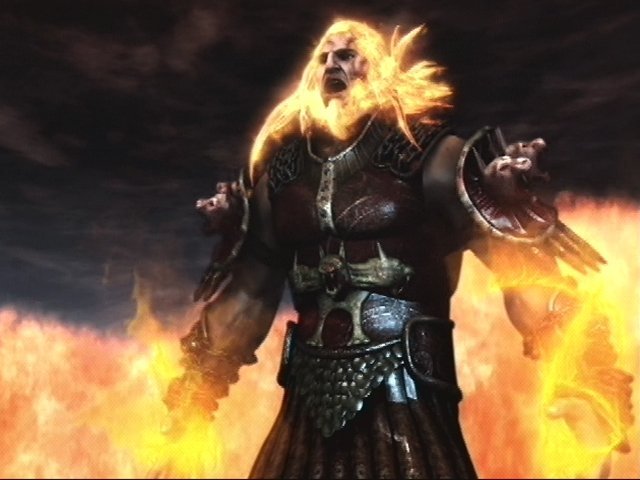
In God of War: Despite saving the life of Kratos, Ares would quickly become a villain. He tricked Kratos into murdering his own family, and was the primary antagonist of God of War.
In Greek Mythology: Despite having such a large role in the God of War series, Ares is largely a side character in Greek mythology. He is perhaps best known for fathering over forty children with the likes of Aphrodite and the Amazon Queen Otera.
-
Athena

In God of War: Athena largely acts as an aid to Kratos throughout the God of War series. Her rivalry with her brother Ares is one of the series main sources of conflict.
In Greek Mythology: Much like in the games, Athena was known for helping out heroes. This included helping Perseus behead Medusa and Heracles defeat the Nemean lion.
-
Atlas

In God of War: After not siding with the Olympians, Atlas would be forced to hold the Pillar of the World on his shoulders for all of eternity. It was there that he would battle with Kratos, and then years later aid the Ghost of Sparta.
In Greek Mythology: After losing to the Olympians, Atlas was forced to hold up the Heavens for the rest of eternity. He didn't manage to do much after that, besides getting tricked by Heracles
-
Castor and Pollux
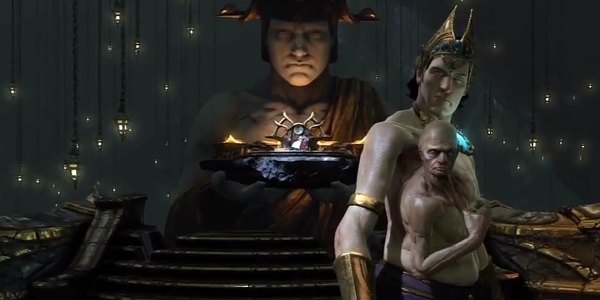
In God of War: Unlike their mythological counterparts, Castor and Pollux are straight up evil in God of War. The conjoined twins battle with Kratos early on in the Temple of the Oracle.
In Greek Mythology: Castor and Pollux were fathered by Zeus while he took the form of a swan. Naturally, the two hatched from an egg (Greek mythology gets weird). Unlike the games, they were generally regarded as swell guys that helped out humankind whenever they could.
-
Cronos
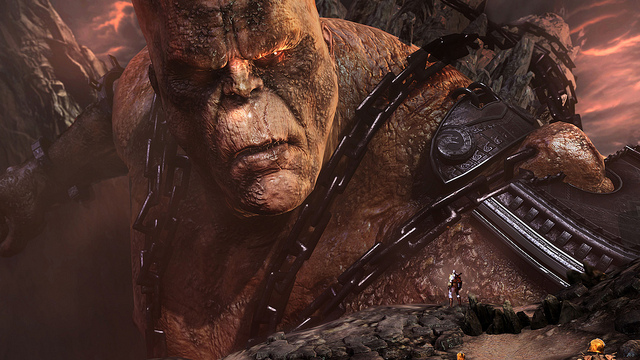
In God of War: Once the leader of the Titans, Cronos now crawls the desert with Pandora's Temple on his back. Cronos is one of the few characters that appear in all three main God of War titles.
In Greek Mythology: Cronos had the strange dietary choice of eating his own children. His son, Zeus, ended up not being a fan of the whole eating babies thing, and ended up overthrowing his father.
-
Zeus
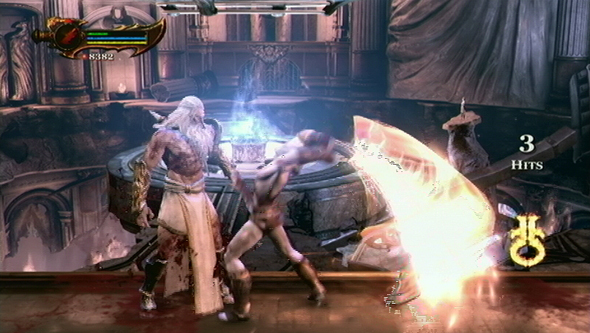
In God of War: After Kratos opened Pandora's Box, his father (and ruler of Olympus) Zeus slowly grew evil. Zeus ended up being Kratos' greatest enemy.
In Greek Mythology: After growing up with some understandable trust issues, Zeus overthrew the Titans and lived on Mount Olympus. He would rule the Olympians and fathered several notable children, such as Heracles, Athena, Ares, and Perseus.
-
Hades
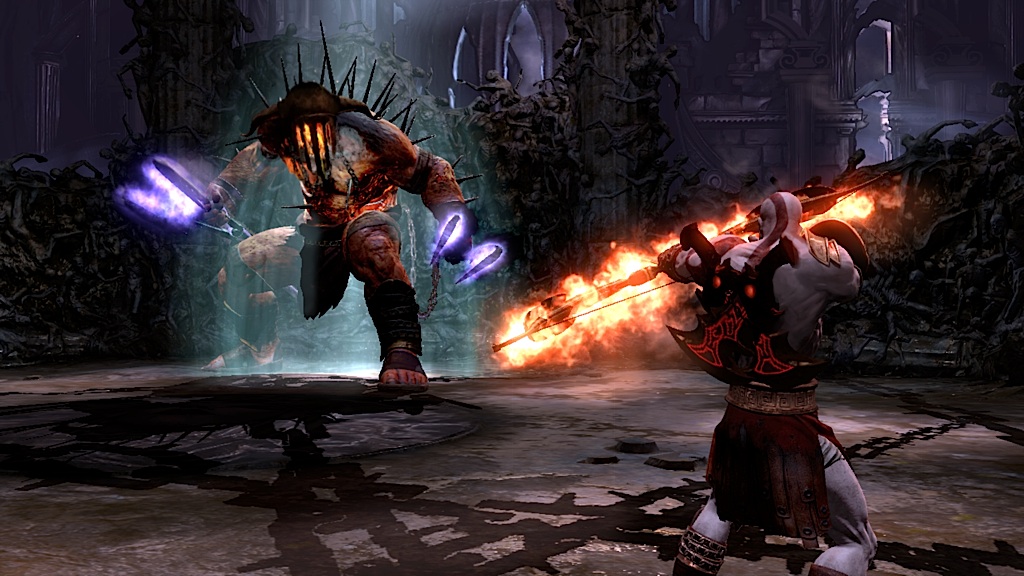
In God of War: Despite being a background character in the first two titles, Hades became a major antagonist in God of War III. His video game representation is fairly faithful to his mythological background. Interestingly, Hades' look changes throughout all three games.
In Greek Mythology: The son of Cronos and Rhea, Hades was the god of the underworld. His three-headed hellhound Cerberus guarded the entrance to the home of the dead.
-
Hercules

In God of War: Hercules (who sports his Roman name for whatever reason) grows jealous of Kratos' accolades. He feels that his half-brother is Zeus' favorite son, and vows to kill him as his thirteenth labor.
In Greek Mythology: After being driven mad by Hera, Heracles killed his family. To atone for his sins, Heracles underwent 12 difficult labors. The Greek hero once conceived 50 sons in one night.
-
Kratos
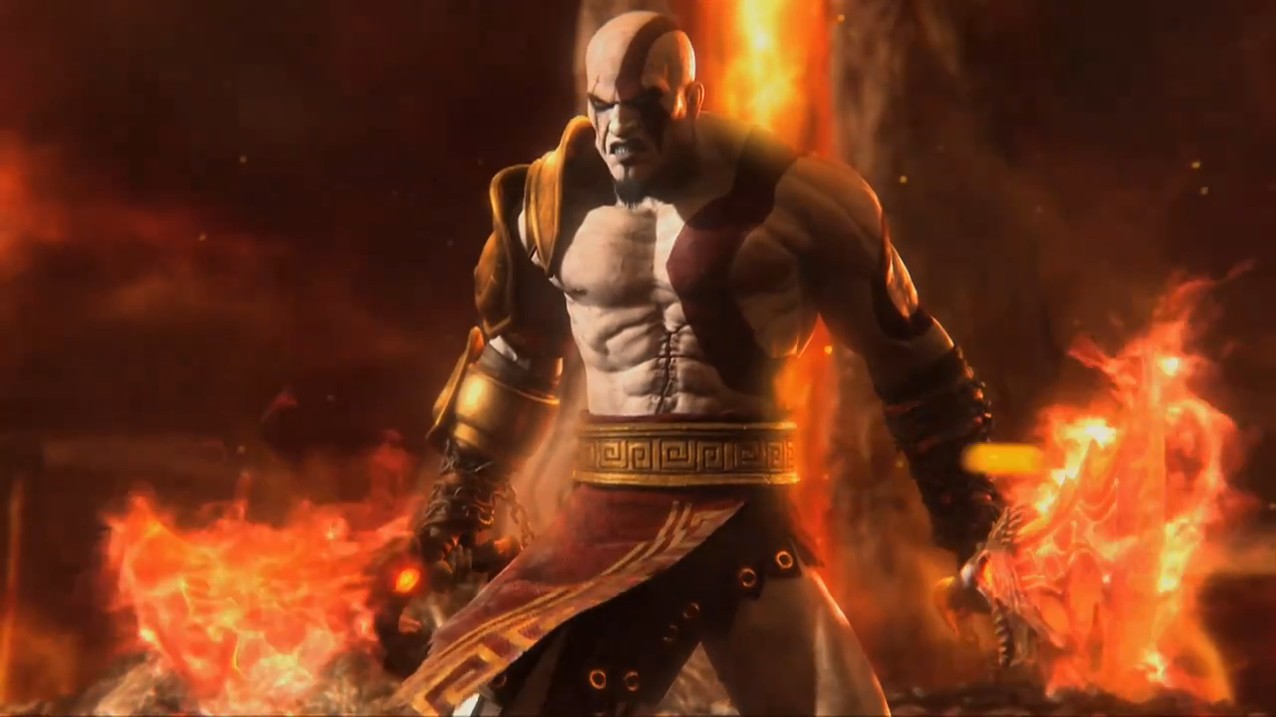
In God of War: Kratos is drastically different in God of War. Instead of being the son of a Titan, Kratos is the son of Zeus. As the protagonist of the series, he accomplishes more than any other Greek mythological figure.
In Greek Mythology: Kratos is the son of the Titan Pallas and the Goddess of the river Styx. His most notable appearance in mythology was helping bind the Titan Prometheus, who gave fire to mankind.
-
Poseidon
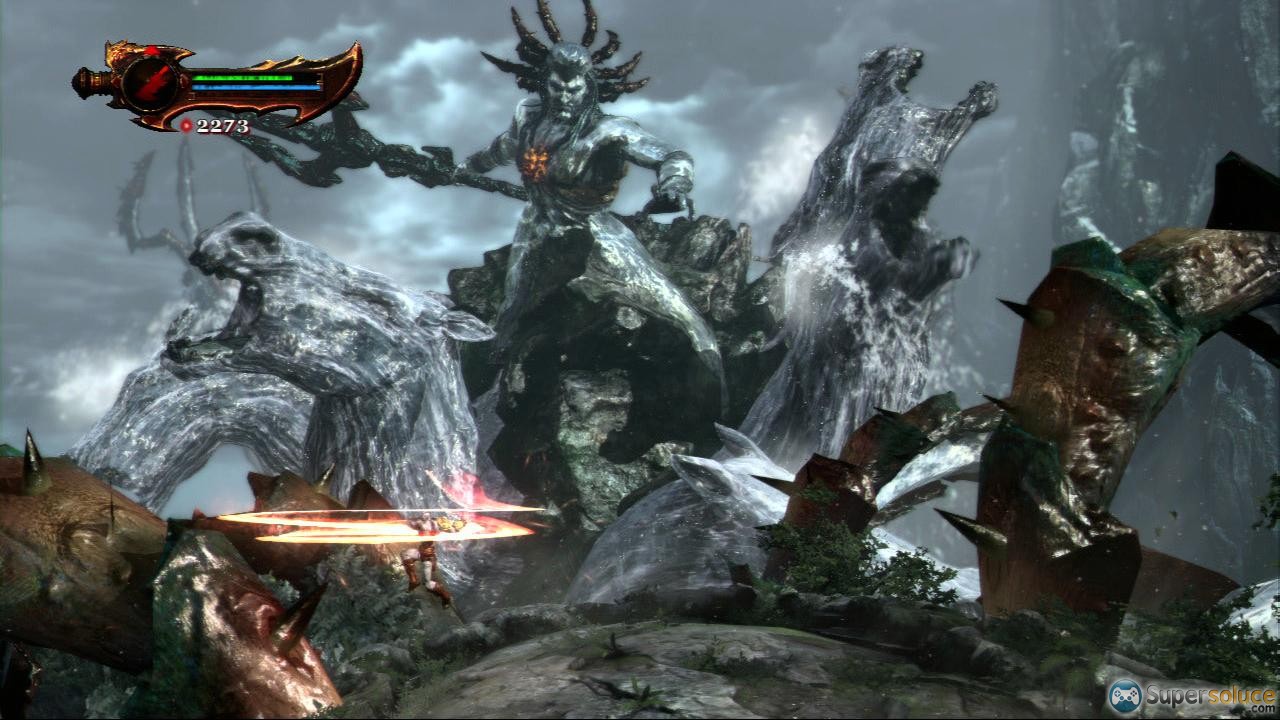
In God of War: Poseidon helps out Kratos in the series until the ghost of Sparta releases Thera who destroys Atlantis. After this, Poseidon vowed to never forget Kratos' actions and ended up being the first boss fight in God of War III.
In Greek Mythology: One of Cronus' children, Poseidon rules over the sea. He has many children, including Arion, a talking horse. You read that right.
